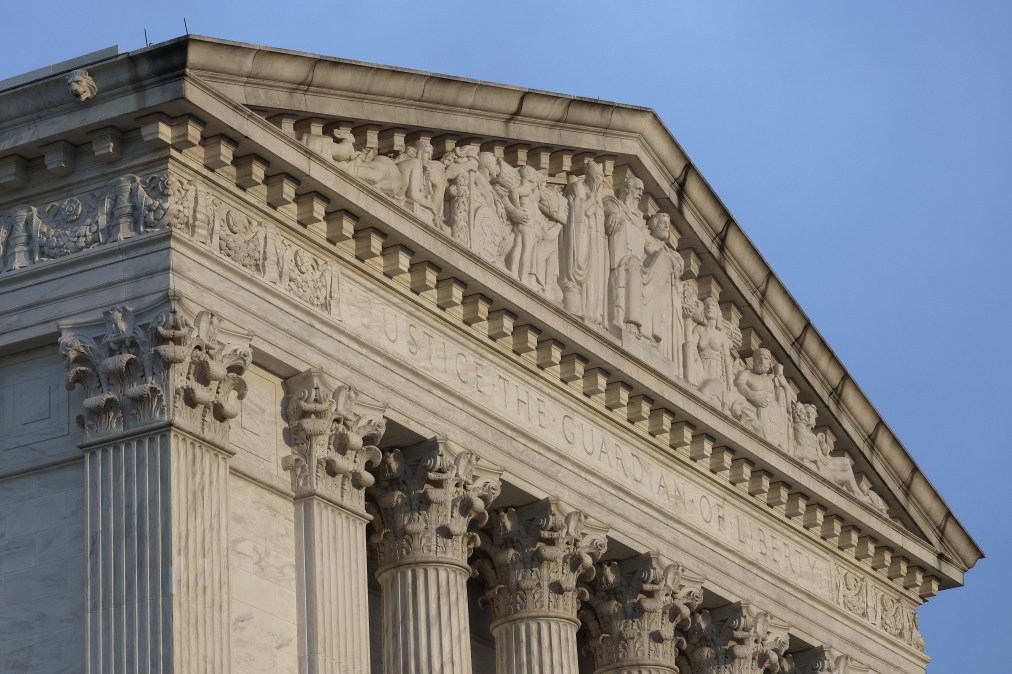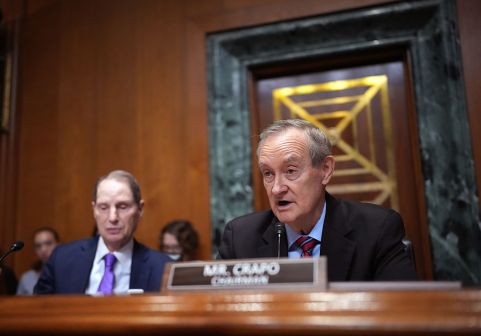Trump asks Supreme Court to block production of DOGE information in lower court

The Trump administration asked the Supreme Court on Wednesday to prevent the production of documents and other information about the Department of Government Efficiency in a Freedom of Information Act challenge against the group.
If the Supreme Court doesn’t grant the government’s requested relief, the U.S. DOGE Service will have to comply with a discovery process ordered by a federal district court judge to determine if the group is subject to FOIA. That discovery would include the production of DOGE-related documents and a deposition of its administrator, Amy Gleason.
While nonprofits that brought the lawsuit argue that DOGE is acting as an “agency” and is therefore subject to FOIA, the Trump administration argues the public information law doesn’t apply to it as a presidential advisory body. In its Wednesday filing, the administration called the district court’s discovery order “sweeping” and “intrusive.”
“That order turns FOIA on its head, effectively giving respondent a win on the merits of its FOIA suit under the guise of figuring out whether FOIA even applies,” Solicitor General D. John Sauer wrote in the application for emergency relief.
The application is the latest in a legal challenge over DOGE’s information sharing filed by the government watchdog nonprofit Citizens for Responsibility and Ethics in Washington (CREW). In its initial complaint, CREW said it had filed FOIAs with the Elon Musk-linked White House group but had not received those documents.
In March, Judge Christopher Cooper of the U.S. District Court for the District of Columbia sided with CREW, ruling that DOGE is subject to FOIA and must comply with the nonprofit’s request for information.
For the purposes of FOIA, an “agency” includes executive and military departments, government corporations and those controlled by the government, and other establishments within the executive branch, including the Executive Office of the President. The U.S. DOGE Service is a renaming of the White House’s U.S. Digital Service, which is within the executive office.
Entities in the White House’s executive office that are subject to FOIA are those that have “substantial authority independently of the President,” Cooper said in his March opinion. Meanwhile, entities not subject to the public information law are those whose “sole function is to advise and assist the President,” Cooper said, citing past decisions of the D.C. Circuit.
“The Court concludes that, on this preliminary record, CREW will likely succeed in demonstrating that USDS wields the requisite substantial independent authority,” Cooper said.
Following that ruling, the Trump administration asked the court for summary judgment, and in response, CREW asked the court for expedited discovery to determine whether DOGE met the bar for “substantial authority” that’s independent of the president. On April 15, Cooper granted the motion expedited discovery, putting a timeline on the production of DOGE documents.
In an attempt to block that production, the Trump administration first asked the D.C. Circuit to halt Cooper’s order for discovery by issuing a writ of mandamus, which the Justice Department’s own manual describes as an “extraordinary remedy, which should only be used in exceptional circumstances of peculiar emergency or public importance.”
While a panel of the D.C. Circuit initially stayed the lower court ruling pending an order, another panel of the appellate court ultimately denied the government’s appeal.
In its new filing to the Supreme Court, Sauer said “public interest and equities likewise favor a stay of the discovery order here, which on its face intrudes on sensitive activities of a presidential advisory body.”
“Those constitutionally based interests overshadow any generalized interest in disclosure of information under FOIA, which could still be fully vindicated if respondent were ultimately to prevail,” Sauer said.






